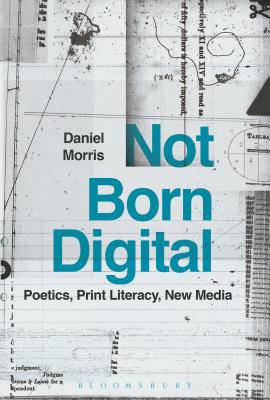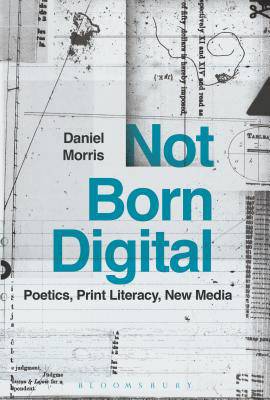
- Afhalen na 1 uur in een winkel met voorraad
- Gratis thuislevering in België vanaf € 30
- Ruim aanbod met 7 miljoen producten
- Afhalen na 1 uur in een winkel met voorraad
- Gratis thuislevering in België vanaf € 30
- Ruim aanbod met 7 miljoen producten
Zoeken
€ 83,45
+ 166 punten
Uitvoering
Omschrijving
Not Born Digital addresses from multiple perspectives - ethical, historical, psychological, conceptual, aesthetic - the vexing problems and sublime potential of disseminating lyrics, the ancient form of transmission and preservation of the human voice, in an environment in which e-poetry and digitalized poetics pose a crisis (understood as opportunity and threat) to traditional page poetry.
The premise of Not Born Digital is that the innovative contemporary poets studied in this book engage obscure and discarded, but nonetheless historically resonant materials to unsettle what Charles Bernstein, a leading innovative contemporary U.S. poet and critic of "official verse culture," refers to as "frame lock" and "tone jam." While other scholars have begun to analyze poetry that appears in new media contexts, Not Born Digital concerns the ambivalent ways page poets (rather than electronica based poets) have grappled with "screen memory" (that is, electronic and new media sources) through the re-purposing of "found" materials.Specificaties
Betrokkenen
- Auteur(s):
- Uitgeverij:
Inhoud
- Aantal bladzijden:
- 264
- Taal:
- Engels
Eigenschappen
- Productcode (EAN):
- 9781501339417
- Verschijningsdatum:
- 25/01/2018
- Uitvoering:
- Paperback
- Formaat:
- Trade paperback (VS)
- Afmetingen:
- 152 mm x 229 mm
- Gewicht:
- 358 g

Alleen bij Standaard Boekhandel
+ 166 punten op je klantenkaart van Standaard Boekhandel
Beoordelingen
We publiceren alleen reviews die voldoen aan de voorwaarden voor reviews. Bekijk onze voorwaarden voor reviews.








